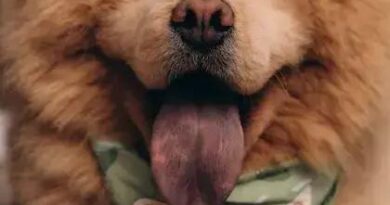O que é Planejamento
What is Planning?
Planning is a fundamental process that involves setting objectives and determining a course of action for achieving those objectives. In the context of dog ownership, effective planning can significantly enhance the experience for both the owner and the pet. This entails understanding the needs of your dog, including nutrition, exercise, training, and healthcare, and creating a structured approach to meet those needs.
The Importance of Planning in Dog Care
When it comes to caring for dogs, planning is crucial. It helps owners anticipate challenges and prepare solutions in advance. For instance, planning for a dog’s dietary requirements involves researching the best food options, understanding portion sizes, and scheduling regular feeding times. This proactive approach ensures that dogs receive the nutrition they need to thrive.
Setting Goals for Your Dog
Effective planning begins with setting clear, achievable goals for your dog. These goals can range from basic obedience training to more complex tasks like agility training or socialization with other pets. By defining specific objectives, owners can create a roadmap that guides their training sessions and activities, making the process more organized and effective.
Creating a Routine
Establishing a daily routine is a vital aspect of planning for dog care. Dogs thrive on consistency, and a well-structured schedule can help them feel secure and understand what to expect throughout the day. This includes regular feeding times, exercise sessions, and playtime, all of which contribute to a happy and healthy dog.
Planning for Health and Wellness
Health planning is another critical component of responsible dog ownership. This involves scheduling regular veterinary check-ups, vaccinations, and preventive care measures. Additionally, planning for potential health issues, such as allergies or chronic conditions, ensures that owners are prepared to provide the necessary care and treatment when needed.
Socialization and Training Planning
Socialization is essential for a dog’s development, and planning plays a key role in this process. Owners should seek opportunities for their dogs to interact with other animals and people in controlled environments. This may include enrolling in training classes, visiting dog parks, or arranging playdates with other dogs, all of which contribute to a well-adjusted pet.
Financial Planning for Dog Ownership
Owning a dog comes with financial responsibilities that require careful planning. This includes budgeting for food, grooming, veterinary care, and unexpected expenses. By creating a financial plan, owners can ensure they are prepared for the costs associated with dog ownership, allowing them to provide the best care possible.
Travel and Lifestyle Planning
For dog owners who enjoy traveling or have busy lifestyles, planning is essential to ensure their pets are well cared for. This may involve arranging for pet sitters, finding dog-friendly accommodations, or preparing for travel with a pet. By planning ahead, owners can enjoy their activities without worrying about their dog’s well-being.
Adapting Plans as Your Dog Grows
As dogs age, their needs may change, necessitating adjustments to the initial planning. This includes modifying exercise routines, dietary changes, and healthcare needs. Owners should remain flexible and willing to adapt their plans to ensure their dogs continue to receive the appropriate care throughout their lives.
Conclusion
In summary, planning is an integral part of responsible dog ownership. It encompasses various aspects, from health and nutrition to training and socialization. By taking the time to plan effectively, dog owners can create a nurturing environment that promotes the well-being and happiness of their furry companions.




